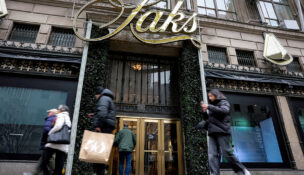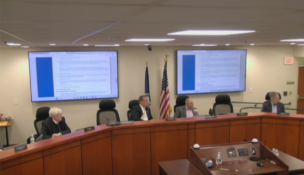Legislation would create permanent law for how Uber, Lyft can operate in Virginia
Virginia Business //February 1, 2015//
Legislation would create permanent law for how Uber, Lyft can operate in Virginia
Virginia Business //February 1, 2015//
Uber, Lyft and other app-based ride-sharing services soon will have a permanent law establishing rules on how they can operate in Virginia. In August, Virginia came up with a temporary agreement that allows Uber and Lyft to operate in the state.
The House of Delegates on Friday joined the Senate in passing a bill that would set licensing requirements for ride sharing services’ drivers.
The House voted 67-28 in favor of HB 1662, sponsored by Del. Tom Rust, R-Herndon.
“Uber, Lyft and other transportation network companies provide a transportation service that Virginians clearly like to use,” Rust said. But he wants to make sure users feel comfortable and safe.
“When the governor signs it into law, Virginians can take advantage of this new technology with assurance that reasonable safety and liability measures are governing its use,” Rust said.
Under his bill, drivers would have to be at least 21 and undergo background checks that examine their criminal history, driving record and sex offender status. The bill also requires that drivers purchase liability insurance with at least $1 million in coverage.
The companies would be required to pay an initial licensing fee of $70,000 and then $3,000 every year thereafter.
On Tuesday, the Senate passed a companion measure – SB 1025, sponsored by Sen. John Watkins, R-Midlothian. The two bills still must be reconciled: The House will now consider SB 1025, and the Senate will consider HB 1662. Then final legislation will be sent to Gov. Terry McAuliffe to be signed into law.
House Speaker Bill Howell was pleased that legislators from both sides of the aisle could agree on regulations for ride-sharing services. “It was important that we got this bill right, and the bipartisan support in today’s vote is a testament to the hard work that so many put into it,” he said Friday.
Apps like Uber and Lyft allow users to indicate their pickup location and destination on their smartphones. The company’s drivers see this and can decide whether they want to pick up the customer. Depending on the number of drivers in the user’s area, someone can arrive for pickup in a matter of minutes.
Like Virginia, states across the country are wrestling with how to regulate these “transportation network companies.” Taxi drivers say the services threaten their livelihood, because nearly anyone who owns a car and can pass a background check is eligible to be a driver. This, in turn, can flood the market – hurting business for cab drivers.
Del. Tim Hugo, R-Centreville, co-sponsored HB 1662. “Improving transportation for Virginians takes more than just building infrastructure,” he said. “It requires us to embrace new technology to better meet citizens’ transportation needs.”
An analysis of the legislation by the Virginia Department of Planning and Budget estimated that it will cost $640,000 to regulate the ride-sharing services during the first year and $440,000 annually after that. But the fees paid by the companies and drivers will cover the costs, the department said.
Clarification: The story has been revised to clarify how new legislation would set up a permanent law for how ride sharing companies can operate in Virginia.
g


















